Below are featured Anthropology Alumni. We always like hearing what our Alumni are currently doing. Want to be profiled here? Email the department at hebbron@reed.edu.
Anthropology Majors
Curious about what alumni do with their Anthropology degree from Reed? The Center for Life Beyond Reed has compiled data such as the top job industry for our Anthropology majors is Education and and Training and the top graduate school is the University of Chicago. See this page for more information about Reed Anthro alums' careers.
Tsering Bum '12

Tsering Bum is the program coordinator of Shanshui Conservation Center, a Chinese conservation NGO headquartered in Peking University that does community based conservation work and research in Tibetan regions of Qinghai, China. Some of the projects he is currently working on for Shanshui include: solving the human-brown bear conflicts, supporting local communities to build trash houses for plastic waste and transport them to major towns for recycling and conducting scientific wildlife monitoring to better understand local ecosystem. His anthropological research is studying the relationship between ecological conservation and worship of sacred sites in Yushu in an effort to form policy recommendations to include Tibetan sacred sites into formal nature reserves. Tsering was recently featured in a Chinese online magazine for environmentalists.
From Tsering: “I have to admit that when I graduated from Reed, I doubted the value of anthropological training in real world application, however, two years in Yushu made me realize that it is this anthropological training received at Reed that helped me to do my work better, especially in the context of interacting with local villagers, I am constantly reminded of the ethics and "right" positions I need to take to maintain the balance, or avoiding creating "problems" for local people. This experience also made me realize that I am really interested in doing research work, and when I am done with my work at Shanshui, I am thinking of applying for further studies in anthropology in the US.”
Peter Stockman '77 and Jeremy Stone '99
Peter Stockman '77 and Jeremy Stone '99 will be participating in Working Weekend on February 8, 2014. Working Weekend is a time when alumni, parents, and friends of Reed travel to campus with the purpose of helping Reed students and recent alumni get traction in careers, internships, externships, and networking.
Daniel Denvir ‘05
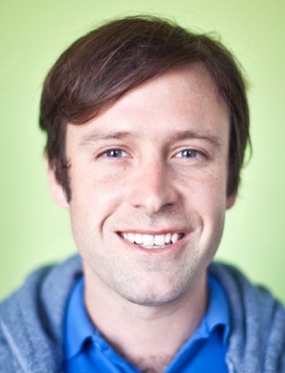 Daniel wrote his thesis on the social and cultural transformations wrought by neoliberal globalization on the border city of Ciudad, Juarez, Mexico (under the patient tutelage of Professor Charlene Makley). After graduation, he worked two years as an organizer with the Portland Central America Solidarity Committee (PCASC), which advocates for labor and immigrant rights and opposes U.S. intervention in Latin America. He then moved to Ecuador where he started to pretend he was a journalist. Denvir is now a staff writer at the Philadelphia City Paper, a contributing writer at Salon.com, and a frequent contributor to The Guardian.
Daniel wrote his thesis on the social and cultural transformations wrought by neoliberal globalization on the border city of Ciudad, Juarez, Mexico (under the patient tutelage of Professor Charlene Makley). After graduation, he worked two years as an organizer with the Portland Central America Solidarity Committee (PCASC), which advocates for labor and immigrant rights and opposes U.S. intervention in Latin America. He then moved to Ecuador where he started to pretend he was a journalist. Denvir is now a staff writer at the Philadelphia City Paper, a contributing writer at Salon.com, and a frequent contributor to The Guardian.
Dan spent the last six months reporting from Strawberry Mansion, asking neighbors what has driven a decade of non-stop shooting and killing. Many of the shootings, it turns out, stem from a single murder in 2003 and the resulting feud between three corners. He hopes that understanding why these murders took place offers clues as to how they can be prevented in the future. His article, A decade of war in Philly's deadliest neighborhood, chronicles this decade-long gunfight involving three corners has wounded numerous bystanders, led to rampant witness intimidation, destroyed lifelong friendships and killed or incarcerated a generation of young men.
His long-time girlfriend is, like many of his friends from Reed, a Ph.D. student. Read more about Dan on his website. Listen to his podcast, The Dig.
Amanda Ufheil-Somers '08
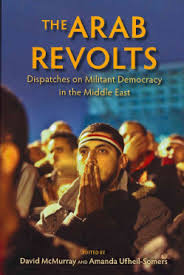 Amanda has worked in a variety of nonprofit organizations engaged in advocacy, direct services, and public education. While in Portland, she was involved with immigrant rights campaigns through the Center for Intercultural Organizing. After a one-year research fellowship with Professor Tamara Metz, she spent two years teaching social studies, research skills, and computer literacy in after-school and summer programs for under-served youth in Washington, D.C. She is currently assistant editor of the quarterly magazine, Middle East Report, where her thesis research sometimes comes in handy. Amanda lives in the District of Columbia. She has recently co-edited the book The Arab Revolts: Dispatches on Militant Democracy in the Middle East.
Amanda has worked in a variety of nonprofit organizations engaged in advocacy, direct services, and public education. While in Portland, she was involved with immigrant rights campaigns through the Center for Intercultural Organizing. After a one-year research fellowship with Professor Tamara Metz, she spent two years teaching social studies, research skills, and computer literacy in after-school and summer programs for under-served youth in Washington, D.C. She is currently assistant editor of the quarterly magazine, Middle East Report, where her thesis research sometimes comes in handy. Amanda lives in the District of Columbia. She has recently co-edited the book The Arab Revolts: Dispatches on Militant Democracy in the Middle East.
The 2011 eruptions of popular discontent across the Arab world, popularly dubbed the Arab Spring, were local manifestations of a regional mass movement for democracy, freedom, and human dignity. Authoritarian regimes were either overthrown or put on notice that the old ways of oppressing their subjects would no longer be tolerated. These essays from Middle East Report—the leading source of timely reporting and insightful analysis of the region—cover events in Tunisia, Egypt, Bahrain, Syria, and Yemen. Written for a broad audience of students, policymakers, media analysts, and general readers, the collection reveals the underlying causes of the revolts by identifying key trends during the last two decades leading up to the recent insurrections.
"This is easily the best volume on the Arab uprisings yet published. The material is very strong and accessibly written, providing rich background on the political and economic contexts in the region prior to the uprisings as well as after the events of 2011 unfolded, based on substantive knowledge....Ideal for students, policymakers, and general readers." —Jillian Schwedler, University of Massachusetts (Jillian Schwedler, University of Massachusetts)
"[T]he contributors to The Arab Revolts... do an excellent job of filling in some of the gaps in Western media coverage, going beyond the dominant narrative of spontaneous youthful protests, aided by the use of social media, to show a foundation of protest built over decades.... This is not a book written by academics for academics, but rather serves as an introduction to readers from any background. The articles are generally free from convoluted jargon or theoretical frameworks that could otherwise limit potential readership. The authors tackle complex problems, but present them in a way that is useful for scholars, teachers, students, and general readers." —H-Empire
Will Munger ‘11
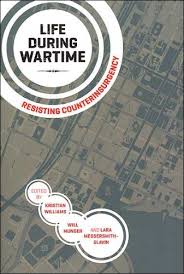 Will is a member of the Life During Wartime editorial collective and also organized the 2011 Counter Counterinsurgency Convergence at Reed during his senior year. He recently contributed to Life During Wartime.
Will is a member of the Life During Wartime editorial collective and also organized the 2011 Counter Counterinsurgency Convergence at Reed during his senior year. He recently contributed to Life During Wartime.
"Together, the writers sound a sobering warning: the American government is an iron fist in a velvet glove whose purpose remains preserving the status quo and enriching the rich."— Publishers Weekly
What happens when the techniques of counterinsurgency, developed to squash small skirmishes and guerrilla wars on the border of Empire, blend into the state's apparatus for domestic policing? In Life During Wartime, fifteen authors and activists reflect on the American domestic security apparatus, detailing the increasing militarization of the police force and the re-emergence of infiltration and counter-intelligence as surveillance strategies, highlighting the ways that the techniques and the technologies of counterinsurgency have been applied on the home front, and offering strategies for resistance. Includes contributions Kristian Williams, Will Munger, Walidah Imarisha, George Ciccariello-Maher, Beriah Empie, Elaine Brown, Geoffrey Boyce, Conor Cash, Vicente L. Rafael, Alexander Reid Ross, Evan Tucker, Layne Mullett, Sarah Small, and Luce Guillen-Givins.
Anthro Alum Panel Spring 2014
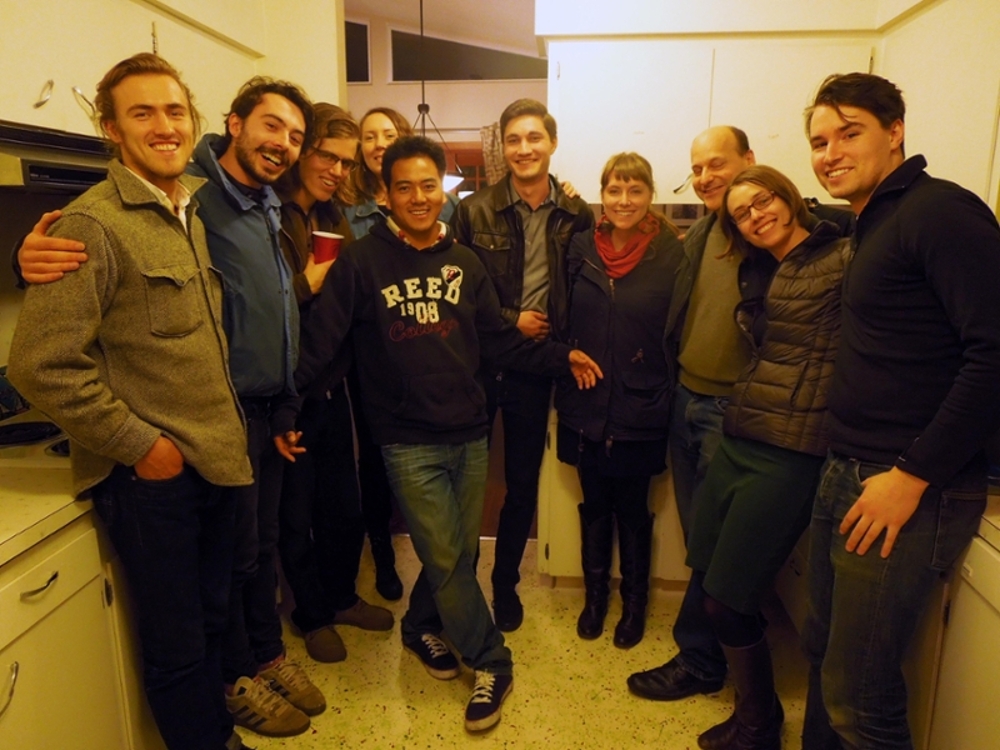
Anthropology seniors and alumni panelists gather with Paul Silverstein after the alumni careers panel at Anthro Chair Charlene Makley's house, March 2014
In March of 2014, the Anthropology Department held our second anthropology alumni careers panel. This time, we invited five alumni (see below for profiles) who are engaged in widely varying work. The discussion was a fascinating foray into how broadly anthropological training shaped their career trajectories. Below are some summary points made by the panelists.
Skills Related to Training in Anthropology at Reed
Translation Skills: mediating multiple forms of data and brokering among different constituencies and stakeholders
- Awareness of the relation between language and power (Fink)
- Working internationally and using foreign language skills (Von der Porten)
- Developing sophisticated writing skills: editors are always needed
- Training in linguistics and linguistic anthropology aids computer/IT work (Henner)
- Analyzing data and translating them into compelling graphics (Von der Porten)
- Importance of quantitative skills: stats are pervasive and authoritative, responding critically and translating them to qualitative points (Henner)
- Developing online quantitative data analysis skills to fact check (Taggart)
- Understanding models and their real-world consequences: “having that crossover skill is a huge advantage” (Henner).
Research Skills: Understanding broad cultural contexts
- Ethnographic and historical research aids in ‘data-driven journalism’ (Taggart)
- Ability to analyze complex situations and distill to key issues
- Ability to track specific decision makers and key decision moments (Taggart)
Comfort with Difference and Partiality:
- Ability to recognize and allow flexibility in human systems and networks
- Capacity to be comfortable in very different and unfamiliar contexts
- Ability to ‘read’ and respond to different interactional or performative contexts, including in elite or professional situations.
Capacity for Reflexivity
- Recognizing consequences of one’s own participation amidst structural inequalities: “How you take up space in the world” (Fink)
- Awareness of the potential for unintended consequences: “We can’t control everyone” (Taggart).
Courage to take a Stand in Advocacy Work
- Recognize the importance of evidence-based action (Casana)
- Know how to follow through with and build trust among people who oppose or protest your work (Casana, Fink)
- Capacity to wrestle with ethical questions, engage in “harm reduction” in non-ideal situations (Casana, Von der Porten)
- Training in Anthro theory and cultural politics provides sensitivity in contentious situations (Casana)
The 2014 Alum Panelists
Robin Fink '09
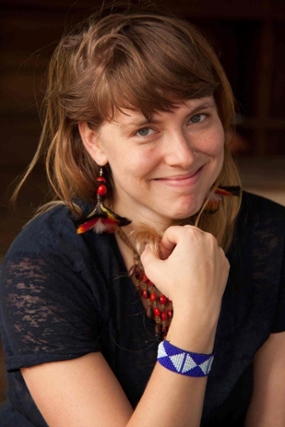 Robin is the Program Director of Jungle Mamas an intercultural maternal health program in the Central South Ecuadorian Amazon of Fundación Pachamama. Areas of expertise include working with culturally diverse populations, especially with indigenous Andean and Amazonian populations on issues surrounding the design, implementation, and evaluation of culturally adequate healthcare in local communities. She is actively engaged in using anthropology and knowledge of divergent cultures by putting it into a practice that can improve community development/empowerment strategies. It all started with the Reed College Ecuador Service Project and the NGO, Ayuda Directa. She started volunteering with the ESP the summer after her freshman year and each summer she went back with a McGill Lawrence Internship award and a Davis Projects for Peace Grant. She studied anthropology and wrote her ethnographic thesis based on fieldwork done in Ecuador. She graduated and started to work as an intern at Fundación Pachamama for the Jungle Mamas program, which eventually evolved into her current position as program director.
Robin is the Program Director of Jungle Mamas an intercultural maternal health program in the Central South Ecuadorian Amazon of Fundación Pachamama. Areas of expertise include working with culturally diverse populations, especially with indigenous Andean and Amazonian populations on issues surrounding the design, implementation, and evaluation of culturally adequate healthcare in local communities. She is actively engaged in using anthropology and knowledge of divergent cultures by putting it into a practice that can improve community development/empowerment strategies. It all started with the Reed College Ecuador Service Project and the NGO, Ayuda Directa. She started volunteering with the ESP the summer after her freshman year and each summer she went back with a McGill Lawrence Internship award and a Davis Projects for Peace Grant. She studied anthropology and wrote her ethnographic thesis based on fieldwork done in Ecuador. She graduated and started to work as an intern at Fundación Pachamama for the Jungle Mamas program, which eventually evolved into her current position as program director.
Kevin Henner '10
After graduating from Reed in 2010, Kevin continued to pursue his abiding interest in Melanesian anthropology within the graduate program at UC San Diego. In 2013, he completed a MA thesis in which he addressed the relationship between rapid cultural change and increased vulnerability to STI transmission in the highlands of Papua New Guinea. He is currently working as an instructional designer and education data analyst at the Portland-based (and Reedie-founded) IT automation software company Puppet Labs.
Kendall Taggart ‘09
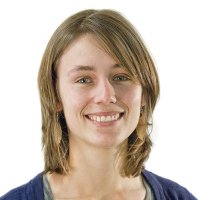 Kendall Taggart is a reporter at The Center for Investigative Reporting. Her recent project, America's Worst Charities, exposed systemic weaknesses in state and federal oversight of nonprofits. The series, produced in collaboration with the Tampa Bay Times, won the Barlett & Steele Award gold prize for investigative business journalism. Kendall also was part of the reporting team that uncovered flaws in the way school regulators in California inspect and certify public schools to ensure they are seismically safe. That series, On Shaky Ground, won the public service award from Scripps Howard and two awards from Investigative Reporters & Editors. Kendall is a Massachusetts native and graduated from Reed in '09. She has lived and worked in Chiang Mai, Thailand, and Trujillo, Peru.
Kendall Taggart is a reporter at The Center for Investigative Reporting. Her recent project, America's Worst Charities, exposed systemic weaknesses in state and federal oversight of nonprofits. The series, produced in collaboration with the Tampa Bay Times, won the Barlett & Steele Award gold prize for investigative business journalism. Kendall also was part of the reporting team that uncovered flaws in the way school regulators in California inspect and certify public schools to ensure they are seismically safe. That series, On Shaky Ground, won the public service award from Scripps Howard and two awards from Investigative Reporters & Editors. Kendall is a Massachusetts native and graduated from Reed in '09. She has lived and worked in Chiang Mai, Thailand, and Trujillo, Peru.
Peter von der Porten '11
Peter has spent the past year working in northern California as an Archaeological Technician in the field of cultural resource management. CRM is the private sector side of archaeology that ensures that development projects follow legal regulations protecting prehistoric and historic resources, such as Native American sites and historic buildings. So far, Peter has surveyed California hillsides, monitored construction in the streets of San Francisco, and excavated a Native American village site on the San Francisco Bay shore. His interests include nineteenth-century California history, urban archaeology, and maritime archaeology, and he is always looking for ways to apply cultural anthropology's critical and methodological insights to the practices of archaeology.
Johnny Casana ‘05
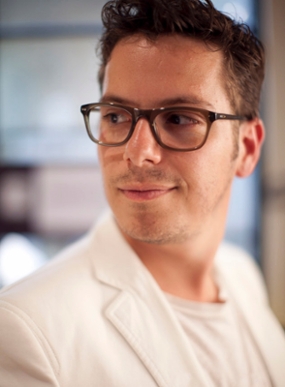 Johnny Casana is the Western Region political affairs manager for EDP Renewables, one of the largest wind energy providers in the world. He oversees political strategies and lobby efforts at the local, state, and federal level, with an aim to substantially increase the amount of renewable energy installed across North America. He serves on a number of industry association boards, and also has experience in wind and solar project development. His first real job out of college put anthropology to work in a literal sense, at the National Science Foundation, where he helped facilitate federal research grants for anthropologists and other social scientists. Johnny credits Reed for preparing him to think critically, to communicate effectively across a broad range of cultural contexts, and—in the case of his thesis—to see a project through from start to finish. He currently lives in Portland with his partner Patricia.
Johnny Casana is the Western Region political affairs manager for EDP Renewables, one of the largest wind energy providers in the world. He oversees political strategies and lobby efforts at the local, state, and federal level, with an aim to substantially increase the amount of renewable energy installed across North America. He serves on a number of industry association boards, and also has experience in wind and solar project development. His first real job out of college put anthropology to work in a literal sense, at the National Science Foundation, where he helped facilitate federal research grants for anthropologists and other social scientists. Johnny credits Reed for preparing him to think critically, to communicate effectively across a broad range of cultural contexts, and—in the case of his thesis—to see a project through from start to finish. He currently lives in Portland with his partner Patricia.